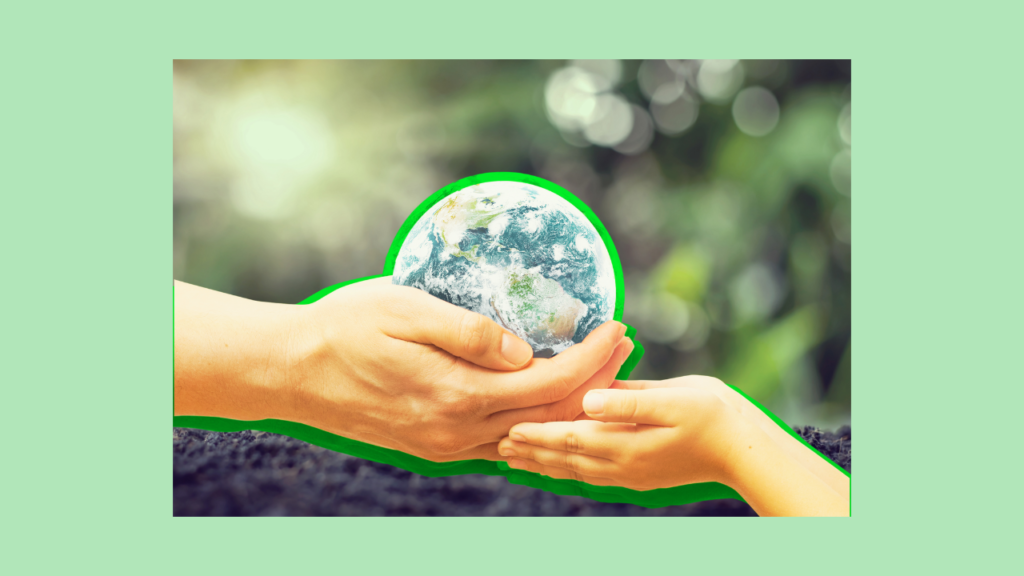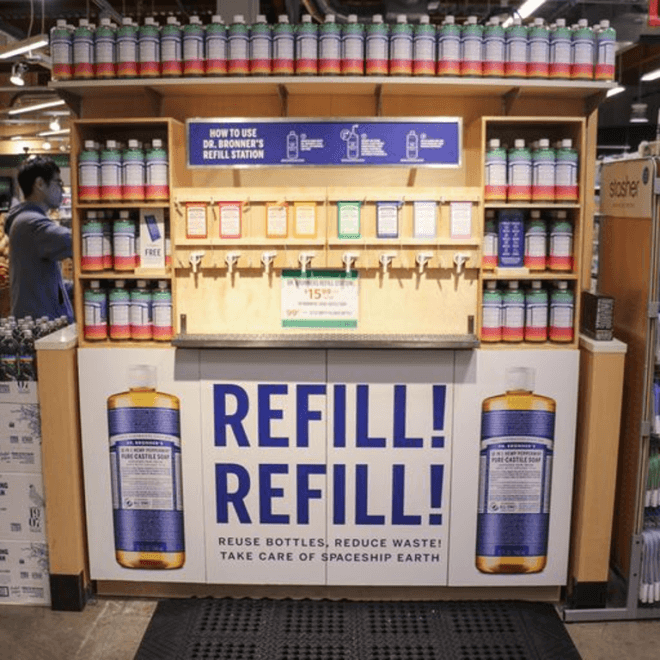Earth Day, first observed on April 22, 1970, has grown into a global movement that now engages over 1 billion people across 193 countries. It serves as a strong reminder, urging everyone to rise to the occasion and protect our planet.
To mark this important day, we’ve curated a list of meaningful ways you can celebrate Earth Day, which is not just as a one-off yearly event, but rather a stepping stone towards protecting the globe. Whether you’re a seasoned eco-warrior, or just beginning your journey towards sustainability, our guide aims to encourage and empower you to make a change.
Earth Day 2024 Theme: Planet vs Plastics
A shocking statistic by Unesco Ocean Literacy shows that plastic waste forms a shocking 80% of all marine pollution, with 8 to 10 million metric tons of it entering our oceans yearly.
Even more alarming scientific research predicts that by 2050, the weight of plastic in the ocean could likely surpass the weight of all fish! What was once considered impossible, could very well be the scary truth.
This thereby sets the stage for Earth Day 2024’s theme: Planet vs Plastics. This theme emphasises the urgent need to address and put a stop to the dangerous impacts of plastic pollution, encouraging the world to turn the tide against this growing threat.
7 Actions to Reduce Plastic Use
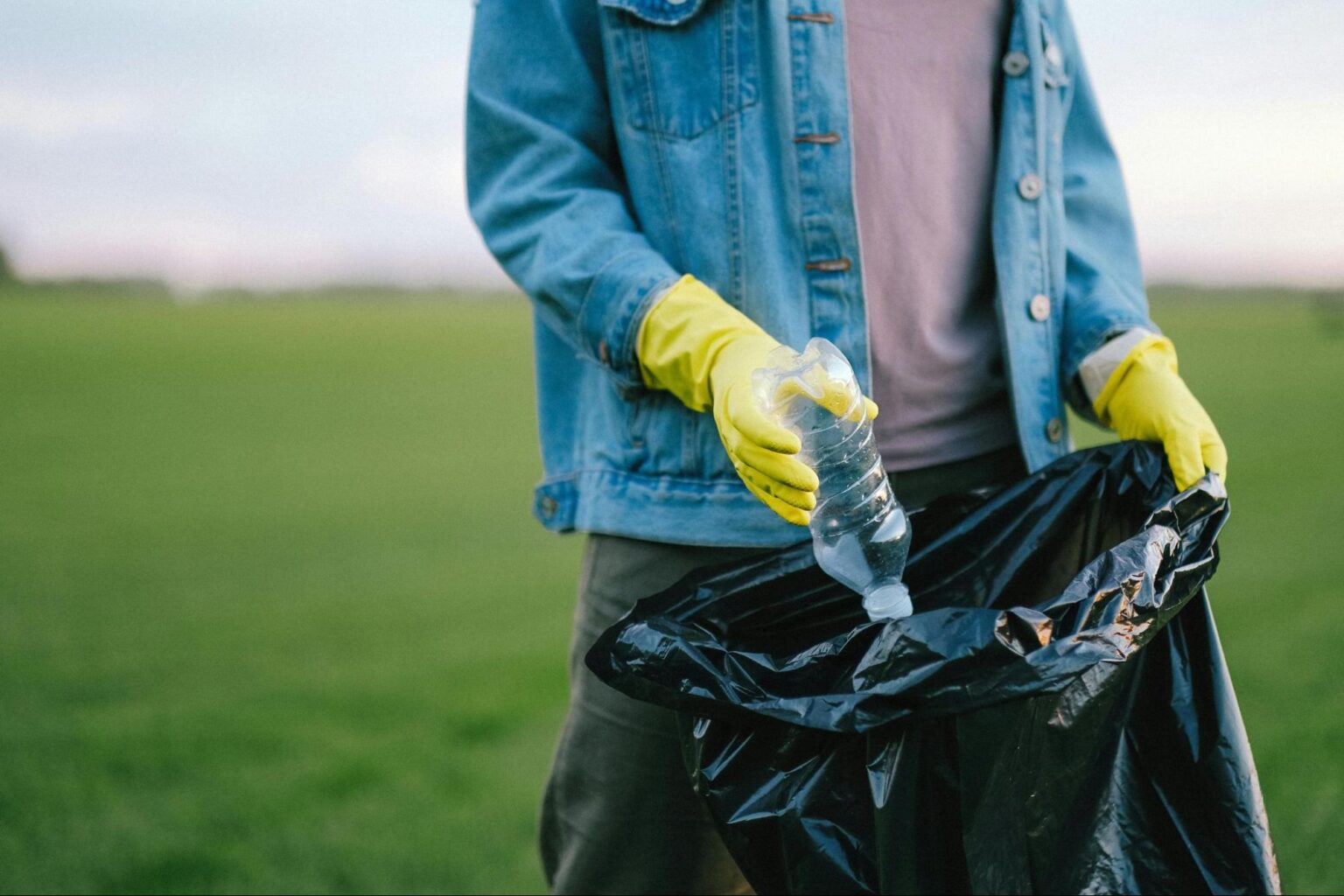
Entirely stopping the production and use of all plastics isn’t quite feasible in today’s world. However, we can significantly reduce plastic waste if we prioritise using recycled materials instead of relying on single-use plastics.
Say No To Plastic Straws and Cutlery
A simple low-cost way to start your sustainability journey is by refusing plastic straws and cutlery when dining out or ordering takeout.
If paper straws disintegrate quickly before your beverage finishes, a simple yet effective alternative would be to carry a reusable straw. Durable materials such as bamboo, stainless steel or silicone, are great sustainable alternatives.
Choose Reusable Products
By embracing reusable products in your daily routine, you can potentially reduce solid waste produced by 86%. One such example is carrying reusable bags for all your shopping needs, which can be stashed in accessible places like your car or bag. Otherwise, you can also switch to high-quality reusable water bottles and cups to cut down on single-use plastics during your coffee runs or water breaks.
Shop Secondhand Products
Consider the positive impact of shopping secondhand. By reusing pre-owned items, you not only give them a new lease of life, but also minimise the demand for new products and the plastic packaging that comes with them, preventing them from ending up in landfills prematurely.
Support Brand Recycling Initiatives
When supporting brands with authentic recycling initiatives, it’s important to differentiate them from those that are greenwashing. Doing thorough research helps identify genuine eco-friendly companies committed to reducing plastic waste through their innovative recycling schemes.
MUD Jeans

The first circular denim brand, MUD Jeans, has successfully recycled 66,787 pairs of jeans into new denim pieces. By transforming old jeans into new pairs, MUD Jeans can significantly reduce the environmental impact associated with denim products, and conserve materials at the same time.
Their take-back scheme consists of collecting jeans containing more than 96% cotton. As a part of this initiative, MUD Jeans are in collaboration with industry experts to produce fabrics which are 40% post-consumer recycled cotton.
For those interested in learning more about their sustainability journey, you can read more here.
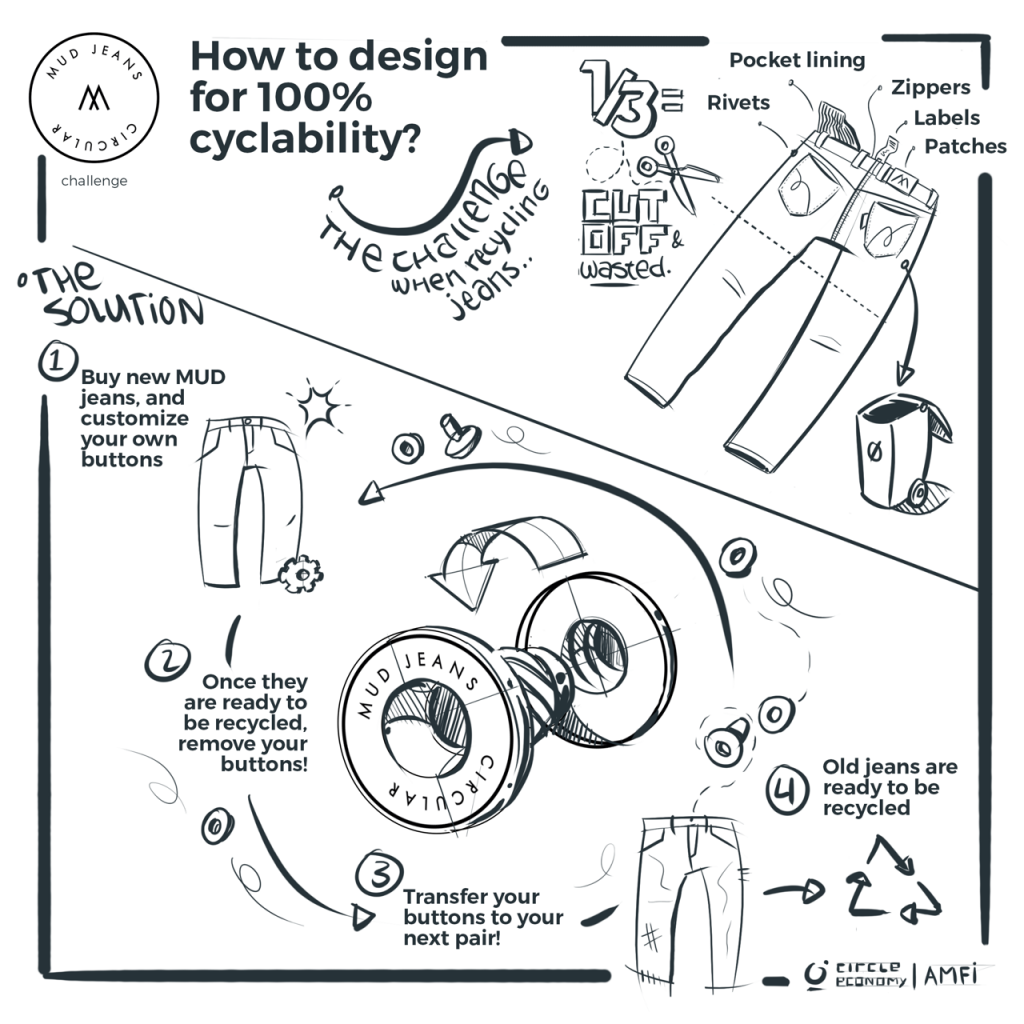
IKEA

One of the leaders in global furniture retail and coincidentally, meatball experts as well, IKEA is committed to their sustainable practices through its circular economy initiatives.
A part of IKEA’s broad strategy to reduce waste and promote recycling, the company uses recycled plastic in their products. Additionally, IKEA has a buy-back program that offers an estimated price to their customers, encouraging those who wish to sell their unused IKEA products. These products will be sold as second-hand products in an effort to reduce wastage. This is a testament to IKEA’s dedication to minimising its environmental footprint.

Dr. Bronner’s

Dr. Bronner’s takes significant strides in sustainability, creating biodegradable soaps that have ethically sourced ingredients. Their dedication to reducing their environmental footprint is highlighted on their website, showcasing their comprehensive approach to sustainability.
The brand has also partnered with Wonderfil to launch a refilling service. This initiative features portable stations with reusable cartridges for bulk liquid products, aimed at reducing waste and promoting reusability. The cartridges are not plastic-free, however its design for efficiency and reuse is a step forward in sustainable practices.
Following a successful launch, Wonderfil is expanding with plans to introduce refill stations across other University of California campuses. This venture not only reduces the environmental impact of packaging but also paves the way for adoption of refill systems.
Join a Clean Up Event
Participating in locally organised cleanup events is a powerful way to foster environmental awareness, particularly when you’re among eco-minded individuals.
Trash Hero is one of the many organisations that coordinate beach cleanups, offering a hands-on experience with the impacts of pollution. Engaging in these activities allows you to witness the environmental challenges first-hand, reinforcing the belief that collective, small efforts can indeed lead to meaningful change.
Get Involved in the #PlasticDetox Challenge
The Earth Day Organization is sparking a movement with its #PlasticDetox social media challenge, inviting everyone to embrace sustainability one step at a time.
By participating, you can exchange valuable tips, celebrate progress, and offer encouragement in a shared quest towards a plastic-free lifestyle. It’s a chance to transform individual actions into collective power, making each step towards sustainability feel more achievable and impactful.
Reduce, Reuse and Recycle
While most of us are familiar with the 3Rs—Reduce, Reuse, Recycle—putting the first R, Reduce, into practice can oftentimes be challenging. This occurs especially when we find ourselves needing to purchase necessities that by default, are in plastic packaging, such as laundry detergent.
Fortunately, this presents a perfect opportunity to practise the second R, Reuse. Instead of discarding those plastic bottles and containers, we can repurpose them. For instance, an empty detergent bottle can be refilled multiple times, and containers can be turned into flower pots for your plants.
If reusing isn’t an option, ensure to practise the last R, Recycle. Remember to dispose of unused plastics responsibly at designated recycling points.
Protecting the Planet Beyond Earth Day: What Can We Do
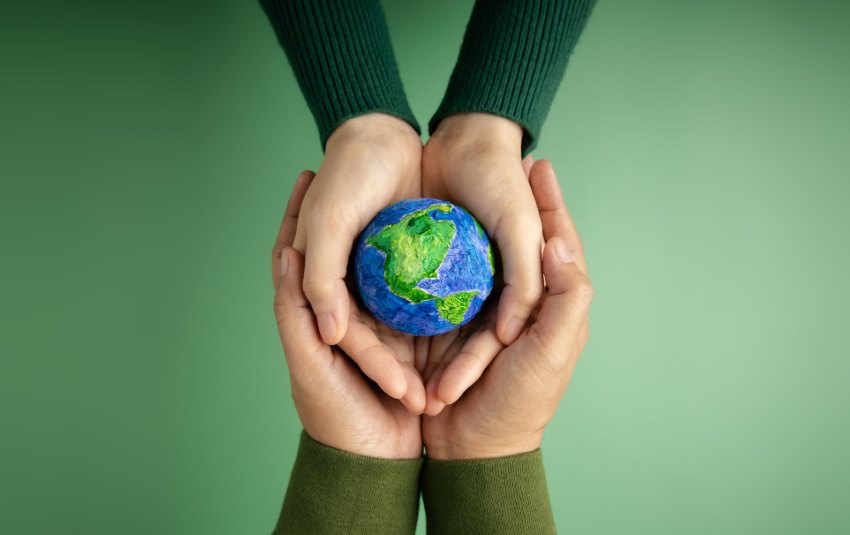
Beyond reducing single-use plastics, It’s also about making a sustainably conscious commitment to conserving our natural resources, combating climate change, and ensuring our ecosystem remains balanced. This is crucial not just for our current well-being but for our future generations as well.
Switch to Renewable Energy: Installing Solar Panels
Switching to solar panels offers a clean, efficient way to harness the sun’s energy, turning it into electricity without all that harmful greenhouse gases.
Taking a look at the line graph below detailing the financial aspects of solar installation, the average payback period for solar panels is between 6 to 8 years. Afterward, there’s a steady incline of cash flow. This means that investing in solar panels for your home not only benefits the planet, but can also be cost-effective in the long run.
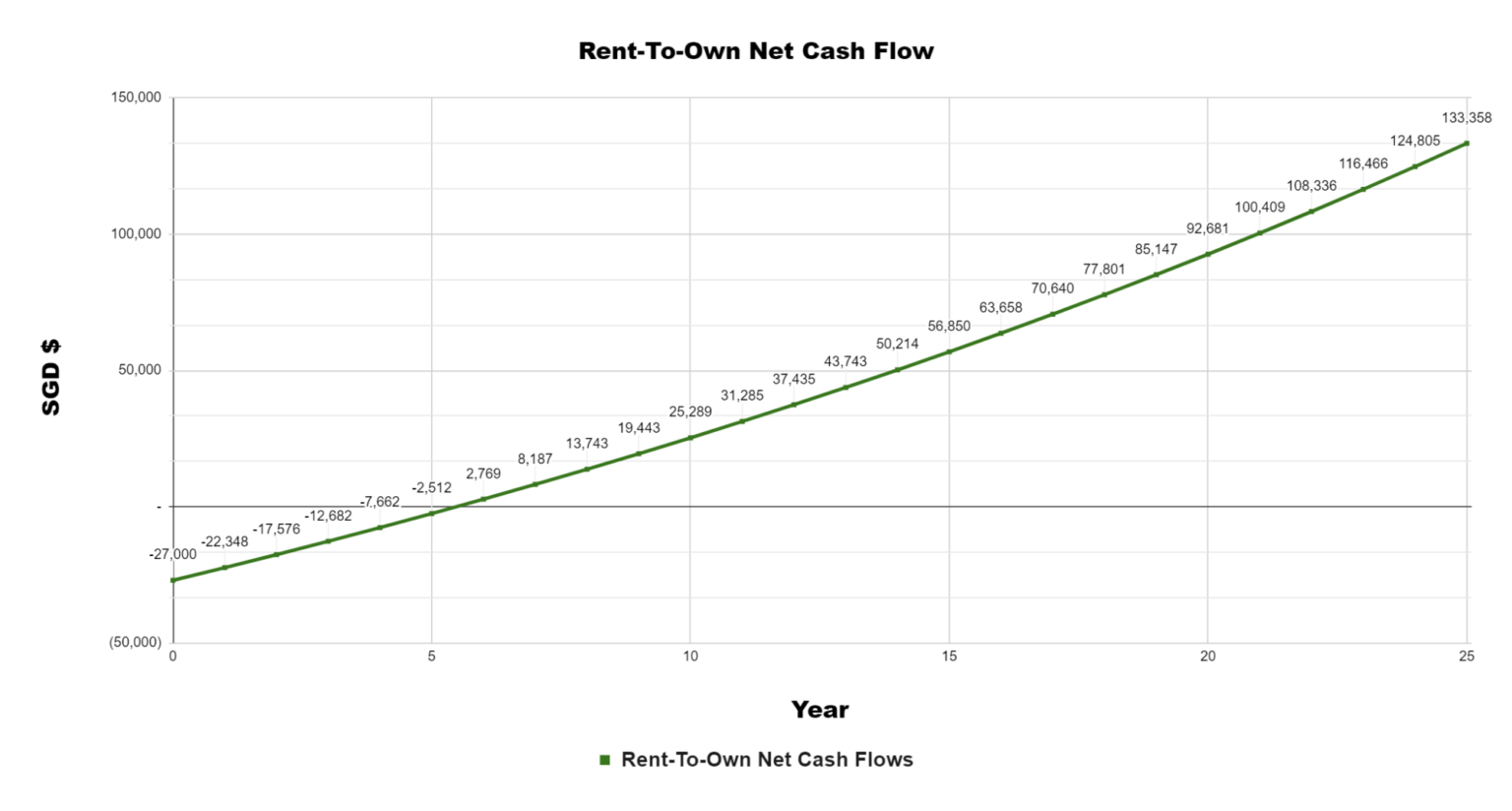
For those interested in solar panels but find the initial costs daunting, GetSolar provides a rent-to-own option with zero upfront expenses. This model allows you to begin saving money immediately, as illustrated in the comparison line chart below.
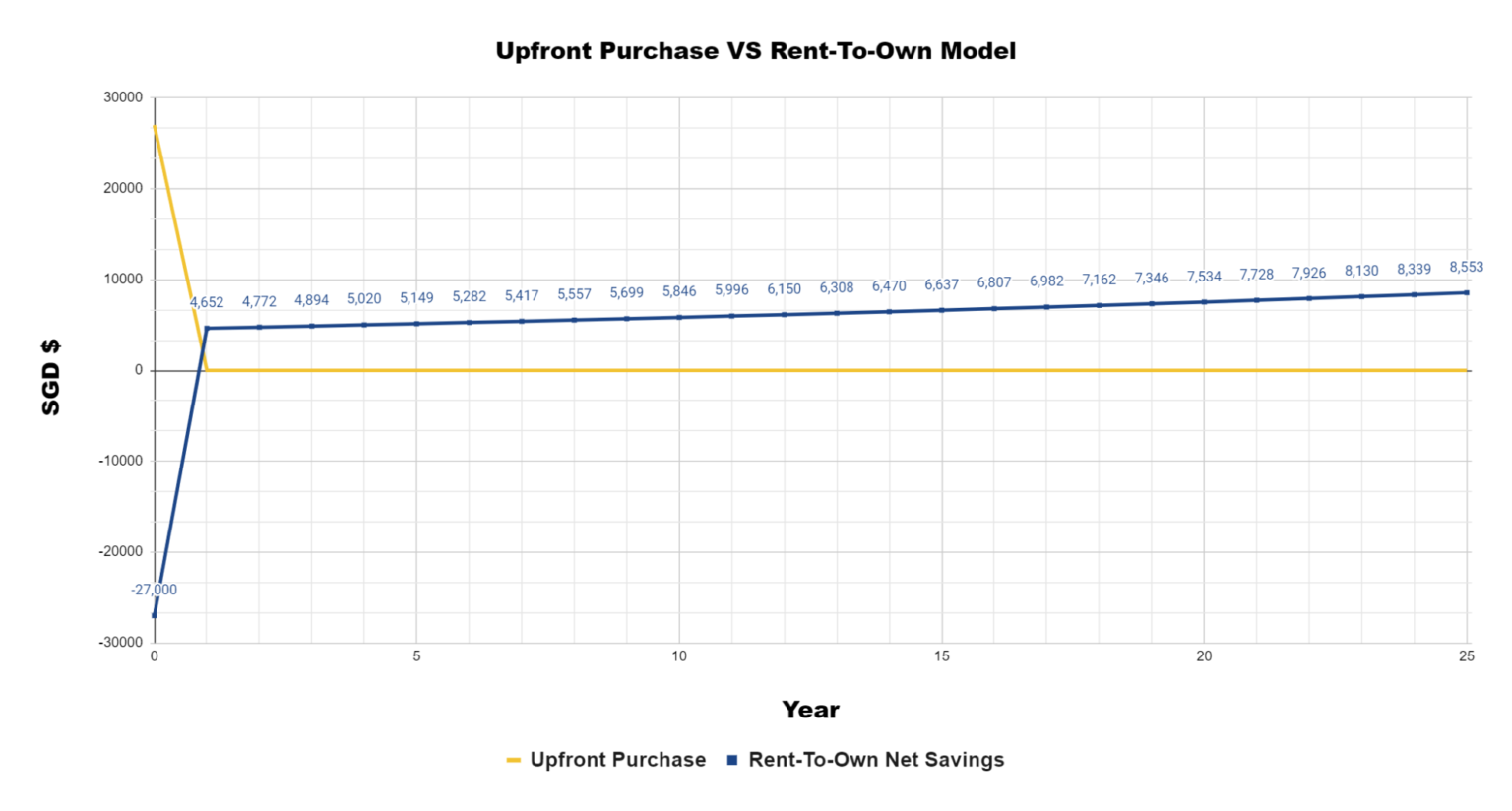
You may explore the detailed articles on the benefits that solar panels offer to get a better understanding on how solar panels work. These blog posts can guide you through the process of transitioning to solar energy.
Use Energy-Efficient Appliances
Eco-friendly warriors can also consider upgrading regular appliances to energy-efficient ones. These special appliances are designed to use minimal electricity while maintaining their duty, and are aligned directly with solar panels. This not only maximises the environmental benefits but can also lead to further savings on your electricity bills.
Tip: Read our article if you’re interested in learning more ways to upgrade to a smart green home.
Choose Electric Vehicles (EV)
With zero tailpipe emissions when charged, EVs offer a promising solution to cut down air pollution and counteract climate change. This is especially relevant as the transportation sector is a major contributor to global greenhouse gas emissions.
Additionally, for those who appreciate a quieter ride, EVs are notably silent, making for a serene driving experience. The introduction of EVs brings a whole new level of driving comfort and efficiency, where drivers can enjoy the benefits of supporting eco-friendly practices while experiencing the quieter, smoother operation of electric vehicle technology.
Tip: Considering making the switch to an Electric Vehicle? Here’s our guide on EV home charging!
Eat Plant-based Meals
Methane and nitrous oxide — these significant contributors to global warming are primarily released through animal farming, they pollute the atmosphere and are factors in the greenhouse effect that impacts our climate.
A sustainable practice in aiding the climate is by lessening the demand for livestock farming. By shifting your diet towards more plant-based foods and reducing the intake of animal products, this change not only contributes to a more sustainable food system, but also lowers greenhouse gas emissions.
Walk Through Nature or Along the Beach
Walking through nature not only immerses you in its beauty and diversity but also highlights the urgent need to protect this greenery from the impacts of climate change. Similarly, a refreshing stroll along the beach can reveal the environmental challenges of waste production, where beach litter such as leftover food packaging and drink bottles may be observed.
Witnessing the firsthand effects toward these natural beauties opens our eyes to the impact that humankind has put on the environment. In a way, you’ll grow a deeper connection and appreciation toward nature, and also be reminded of our responsibility for the Earth.
Plant Trees
You may be wondering – how do I start planting a tree in my own country? Organisations like The Nature Conservancy support this initiative by accepting your donations to plant a tree. Such contributions not only help combat climate change, but also support biodiversity and ecosystem health. In essence, planting a tree is a simple and effective way to contribute to aiding the climate.
Want more tips on how to reduce waste and live more sustainably? We did a podcast with The Financial Coconut, which had discussions and valuable insights on reducing waste and living a more sustainable lifestyle.
Embrace A Meaningful Earth Day Celebration
As Earth Day approaches, let’s remember the significance of this global event and the importance of our collective efforts to protect and preserve our planet. Whether it’s through small everyday actions or larger community initiatives, each of us has the power to make a positive impact on the environment.
For those residing in Singapore and interested in exploring solar solutions, consider reaching out to GetSolar – one of the top solar companies. With our solar panel calculator, discover firsthand how transitioning to solar energy can bring benefits to your home.

